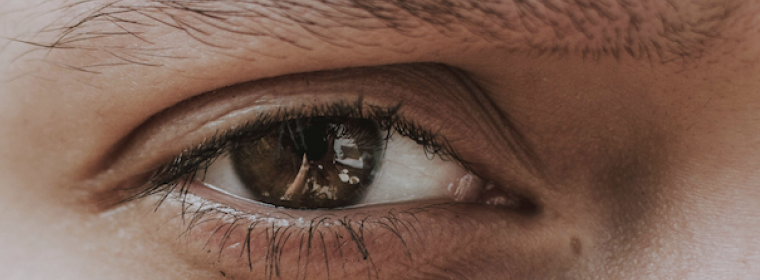
Many people have them, those dark circles under the eyes. They make the face look tired and older. They affect our self-esteem. Dark under eye circles can be seen with any skin type but are definitely more common in individuals with darker complexions.
There are few scientific studies about the cause of this condition. Some blame fatigue, and for some, a few good nights of sleep does seem to remedy the situation. But for others, even getting 8 hours of sleep regularly doesn't seem to help. For some, it runs in the family, "mom has it" and "grandma had it." As we age, the skin thins, the fat under the skin atrophies allowing the blood vessels around the eyes to become more obvious. As a consequence the skin appears darker. Dark circles around the eyes are often accompanied by puffiness under the eyes and are a mere result of shadows that are cast due to the puffiness. Disorders that increase lower lid sagging, by increasing water retention, can worsen the appearance of dark circles (thyroid disease, kidney disease, and heart ailments.) Sleeping in a more upright position using pillows to elevate the head seems to improve puffiness for some, but for others, it seems to make no difference. Eczema sufferers often have inflammation around the eyes. This inflammation may leave a footprint of pigment around the eyes called Post-inflammatory Hyperpigmentation. Constant rubbing or scratching the area exacerbates the problem. Treating the eczema may often lighten the dark circles around the eyes. Sun exposure may induce the production of pigment around the eyes. When outdoors, always wear sunscreen and UV protective sunglasses.
Since there are many causes of dark eye circles, there is no real consensus on treatment. The following recommendations, however, may improve the condition:
- Get adequate sleep (8 hours/night)
- Sleep with extra pillows elevating the head
- Wear broad spectrum sunscreen daily (SPF 30+)
- Wear sunglasses with UV protection
- Apply cool compresses to relieve puffiness
- Moisturize the area twice a day
- Cover up with a concealer
Seek medical attention to manage allergies and eczema and to rule out any underlying medical cause.
Note: Various treatments available from your dermatologist include topical depigmenting products, chemical peels, injectable fillers, and various light and laser therapies.





